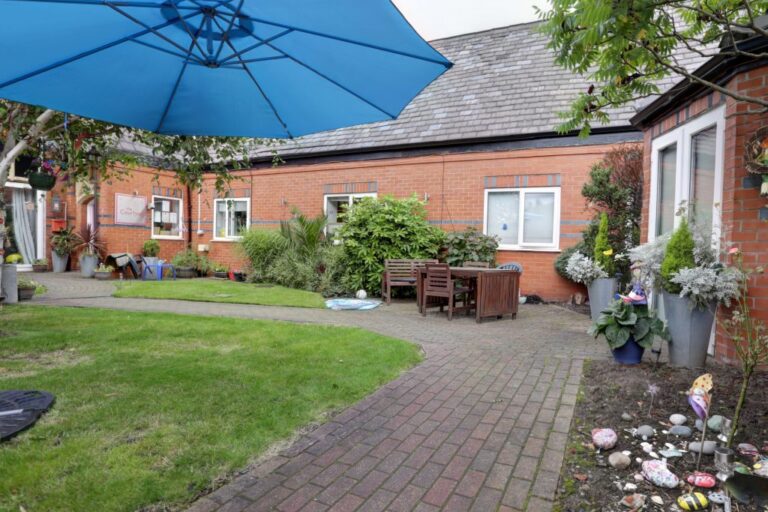We spoke to Kyle Riley, Team Leader at The Courtyard to see how the Happiness Programme was supporting children living with complex care needs.

The Courtyard is a venue near Manchester, dedicated to the care of 5 children with complex needs, supported by 16 staff. Many of the children, ranging from 6 to 16 years old, are non-verbal and all require help to eat and drink.
“We realised very early on that the magic table 360 could be used differently with each child. This suits a venue like ours because of the diverse range of needs and ages our children have. We can therefore personalise the activities and adapt to the situation right there and then. Because all 5 children go to school, we’ve used the projector most in the evenings and at weekends.
And, because of the way we use the projector, we’ve seen a variety of benefits and impacts. One unexpected benefit has been the ability to use it to project calming games on to ceilings and beds to help the children go to sleep. One of our girls finds the Pond Fishing game particularly effective for this.
We have 1 girl with brittle bones and Costello Syndrome who we run 1-2-1 activities with. The flexibility and manoeuvrability of the projector is great as we often play the games on her bed or on the floor, depending on the circumstances that day.
Our two younger children, who are 6 and 9, play on the floor and it’s great to see them engage and enjoy something together.
Another of our children struggles to focus and concentrate and yet the magic table 360 seems to cut through that. The Piggy Bank game in particular really draws her in, and the staff believe she’s starting to learn about the game outcomes (where you have to collect as many different value coins in the Piggy Bank as possible). This, for her, is a significant step and is wonderful to see. She’s engaged, energised and positive.
Finally, one of our boys has found it a real help in managing situations that cause stress and anxiety. For the staff, this also helps with challenging behaviour. For example, when circumstances arise that require him to go to his bedroom, he takes this as a sign of punishment for having done something wrong. The magic table 360 games have turned this around – he goes from crying to laughing as soon as he’s able to engage with the games. He enjoys the audible aspects, for instance the sound of the cheers when someone scores a goal in the Match Of The Day game. He also likes to see the staff play and gets absorbed by the fun and competitiveness of it all.”
Not a member of the happiness programme?
The Happiness Programme is a first-of-its-kind initiative helping to change the lives of people living with cognitive challenges. We use interactive light technology to provide meaningful activities for residents and patients in care homes and care settings. For more detail on what the Happiness Programme is and how it’s helping care venues across the UK, visit our getting started page.
Alternatively, jump to our dementia, learning disability, rehabilitation and NHS pages for more specific detail on how it’s helping care homes like Barchester and HC-One as well as hospitals and local authorities such as St George’s Hospital, London and Westminster and South Kensington Council.
For anything else, you can contact us here too.

Copyright © 2021 Social-ability. All Rights Reserved.